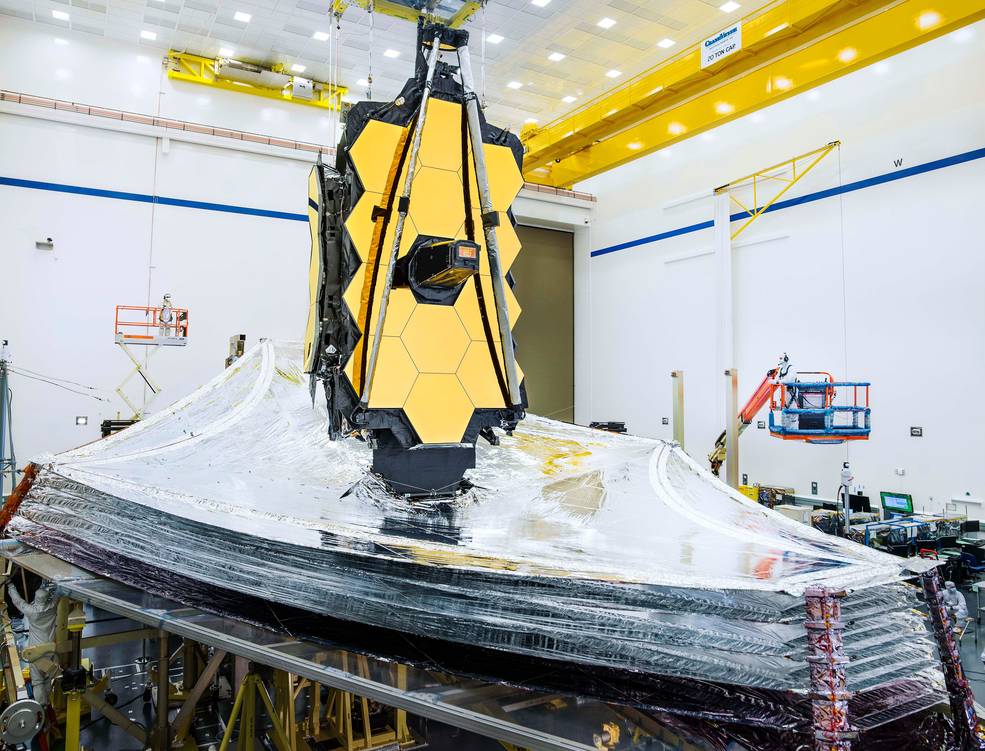
NASA’s upcoming James Webb Space Telescope (JWST) is unlikely to meet its launch date later this year, according to a new report by the United States Government Accountability Office (GAO), first documented by Ars Technica. The report, titled “James Webb Space Telescope: Technical Challenges Have Caused Schedule Strain and May Increase Costs,” details an investigation by the GAO into the latest status of the troubled telescope.
The report looks at both the progress made on the JWST since the last report in March 2019, and the likelihood that the project will hit its launch date of November 2020. In the former category, the project is doing well, with the report recognizing that the project has made “significant progress” such as the testing of individual elements of the spacecraft and telescope, and working to integrate these components into one whole.
Regarding the potential of the project to make its launch date, however, the report is less optimistic. There is “only a 12 percent likelihood that this date will be achieved,” according to the report, and delays seem likely as “NASA plans to reassess the launch date in the spring of 2020.”
The report describes the extra time built into the schedule of complex projects, called “schedule reserve,” as well as extra budget available called “cost reserve.” These reserves are planned for on the basis that projects as large and ambitious as JWST often require extra time and money for challenges which only become apparent once work has already begun. The issue with JWST that the report seems most concerned over is that the project has already used 76% of its schedule reserve, meaning there is little leeway available should further delays occur in the future.
In addition, the expenditure of this schedule reserve has meant that private contractors, such as those from Northrop Grumman, have been employed for extended periods which has led to ballooning costs for the project.
Despite these issues, the report acknowledged the work done by NASA to respond to worries over budget and time efficiency raised by the last report. It also acknowledges improvements in performance by NASA contractors including Northrop Grumman. It concluded that it would not make recommendations for the project, as NASA has already acted on previous GAO recommendations.
We will wait and see if the JWST can hit its November launch date, but that is looking increasingly unlikely.



